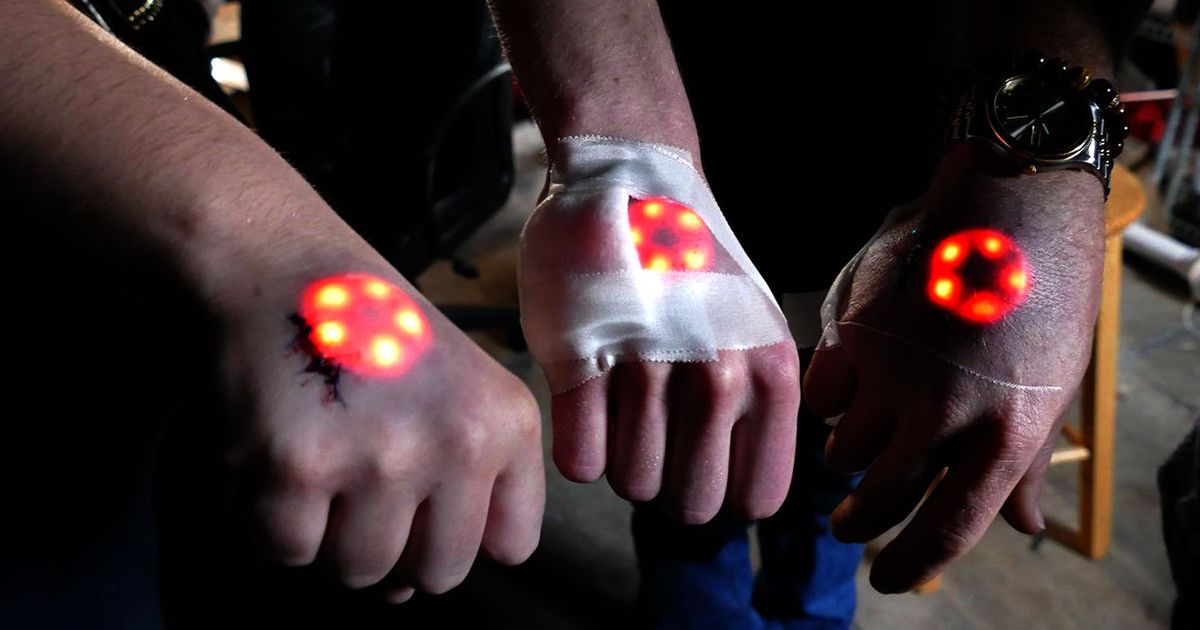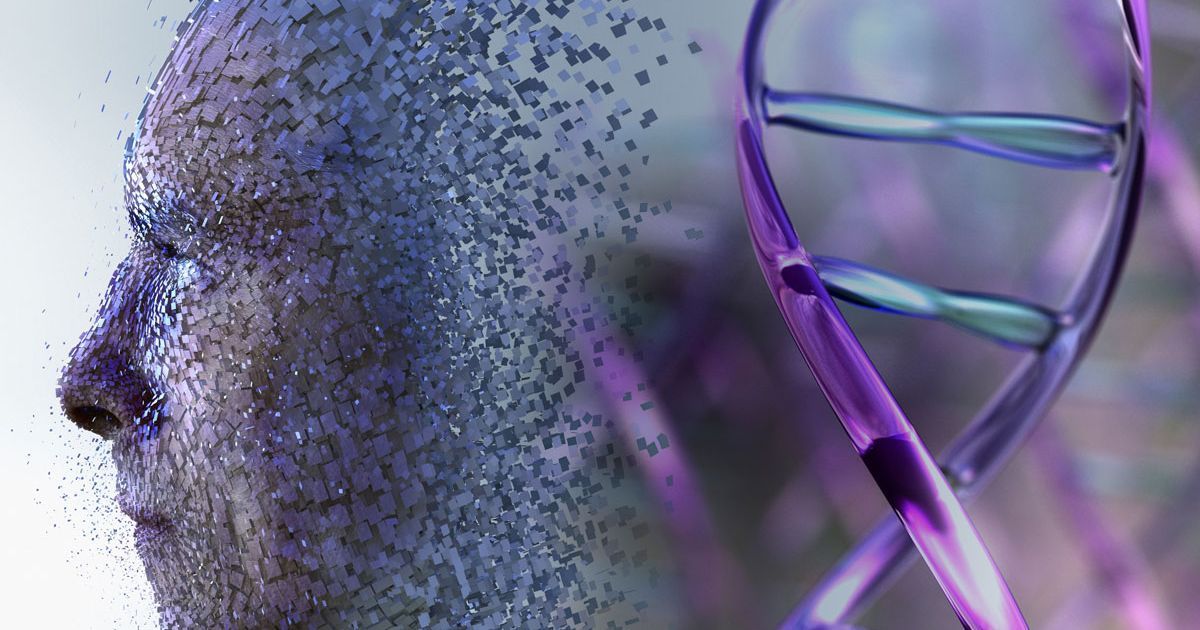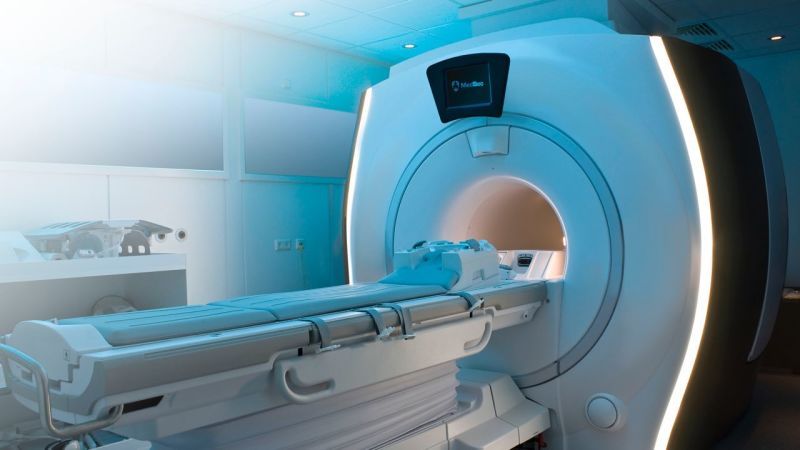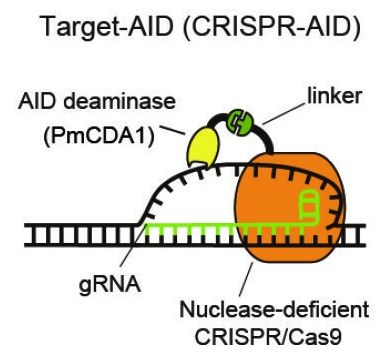#CRISPR can be used to alter the genes of not only one organism, but an entire species, through a method of inheritance known as a gene drive. But what happens if something goes awry?
Category: biotech/medical – Page 3,169
Aubrey de Grey — Pushing back Death
Even insurance companies are taking longevity seriously now!
Source: http://www.riskmindslive.com/will-rea…
Is ageing a disease? Can it be cured? Can death be pushed back? Will you live to 1000 years? Aubrey de Grey, Chief Science Officer, SENS Research Foundation divulges the truth behind longevity and the ensuing risks and discover how you should transform your life insurance models. He spoke to Markus Salchegger, Managing Director at Accenture Risk & Finance at RiskMinds Insurance 2016, Amsterdam.
Website: http://sens.org


Faces of murderers could be recreated from DNA left at crime scenes after science breakthrough
The faces of murderers or rapists could be ‘recreated’ from DNA left at the scene of the crime, according to new research.
Scientists have identified the genes that shape the extraordinary variation in the human face.
Many features, such as nose size and face width, stem from specific mutations, say researchers.

Anti-aging effects (in mice) of a dietary supplement called alpha lipoic acid
Scientists at Emory University School of Medicine have found that the dietary supplement alpha lipoic acid (ALA) can stimulate telomerase, the enzyme that lengthens telomeres, with positive effects in a mouse model of atherosclerosis.
In human cells, shortened telomeres, the protective caps at the ends of chromosomes, are a sign of aging and also contribute to aging.


Researchers succeed in developing a genome editing technique that does not cleave DNA
Major advancement in Gene Editing.
A team involving Kobe University researchers has succeeded in developing ‘Target-AID’, a genome editing technique that does not cleave the DNA. The technique offers, through high-level editing operation, a method to address the existing issues of genome editing. It is expected that the technique will be applied to gene therapy in the future in addition to providing a powerful tool for breeding useful organisms and conducting disease and drug-discovery research. The findings were published online in Science on August 5.
The team consists of Project Associate Professor NISHIDA Keiji and Professor KONDO Akihiko (Graduate School of Science, Technology and Innovation, Kobe University) as well as Associate Professor YACHIE Nozomu (Synthetic Biology Division, Research Center for Advanced Science and Technology, the University of Tokyo) and Professor HARA Kiyotaka (Department of Environmental Sciences, Graduate School of Nutritional and Environmental Sciences, University of Shizuoka).
Genome editing — which can directly manipulate the genome information of various organisms without leaving an artificial strand — has seen rapid progress in recent years and it is gradually becoming a revolutionary tool in fields ranging from life sciences to advanced medical research.

Mind-controlled nanobots could be used to treat depression or epilepsy
It echoes the nanite and nanobot technology seen in science fiction TV series like Star Trek and Red Dwarf, where swarms of microscopic robots can be used to repair damaged tissue.
Researchers at Bar Ilan University in Ramat Gan, Israel, and the Interdisciplinary Centre in Herzliya, built their nanobots using a form to DNA origami to create hollow shell-like structures.
Drugs could then be placed inside these before they were chemically locked shut with particles of iron oxide.


Can Biotech Companies Save The Rhinos?
To help stem the tide of rhino poaching, some biotech companies such as Pembient are seeking to develop and manufacture synthetic horns that are biologically identical to the real thing. The thinking behind this is that the availability of bio-identical fake horns at a substantially lower price than wild horns would cause demand to shift towards the synthetic substitutes, which would reduce people’s incentives to poach rhinos.
I have argued previously that—from the perspective of what would be most effective in curbing poaching—the synthetic horns should not be made to be perfect fakes, i.e., bio-identical. Instead, the synthetic horns should be engineered to be (i) difficult to distinguish from wild horns but (ii) undesirable or unappealing in some respect so that buyers would place little value on them. This proposal makes use of a phenomenon in economics known as adverse selection, which occurs when buyers in a market are unable to distinguish between high- and low-quality products, and their lack of information drives down demand—and, hence, prices—enough that high-quality products (which would be wild horns in the context of rhino horns) cease to be supplied by sellers.
For conservationists and others who are concerned about the fate of the rhinos, it is critical to understand why biotech companies would prefer making bio-identical synthetic horns—rather than undesirable fakes—because of the implications this has for conservation policies. Simply put, it would be more profitable to produce and sell perfect fakes rather than synthetic horns that would be considered undesirable. All else being equal, putting out undesirable fakes that buyers cannot distinguish from the real ones, by reducing demand for horns, would lead to lower prices in the horn market compared to the case with bio-identical synthetic horns. This, of course, would generate less revenue for the producers of synthetic horns.